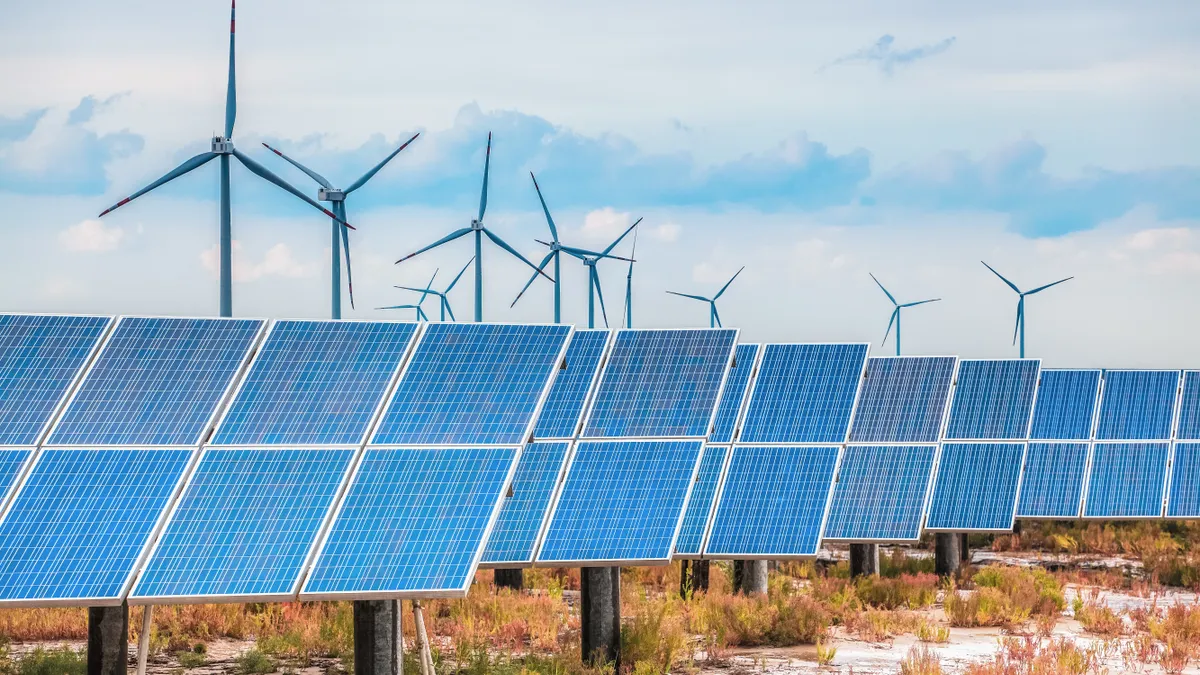Dive Brief:
- AEP Ohio this week asked regulators approve an extension of its current Electric Security Plan, allowing the utility to invest in customer service and reliability improvements, renewable power, microgrids and electric vehicle charging, while also recovering costs associated with coal generation, Greentech Media reports.
- AEP's current plan is scheduled to expire in 2018; the utility asked the Public Utilities Commission of Ohio to extend the plan to May 2024.
- The utility said it expects a decision in April; if approved, an average customer's bill would rise about $1.58 per month.
Dive Insight:
American Electric Power's plan to supply energy through the next eight years is a wide-ranging proposal that embraces both decarbonization as well as support for its coal generation.
Following months of debate over struggling generation in Ohio, the utility is asking regulators to support a mechanism allowing recovery of costs associated with its 423 MW share of Ohio Valley Electric Corporation (OVEC) coal-fired generation. AEP is also, however, committed to developing 900 MW of new renewables, including 500 MW of wind and 400 MW of solar.
“This proposal will allow us to continue programs that have improved the reliability of our service in recent years and introduce new, smarter energy technologies on our system that help the system operate more efficiently and effectively,” AEP Ohio President and COO Julie Sloat said in a statement. “It also gives us a way to invest in renewable generation that will bring clean energy, jobs and support economic development in Ohio.”
The plan calls for 250 electric vehicle charging stations, and up to 10 microgrids that would power critical infrastructure, including police and fire stations, medical facilities and other critical facilities. New smart street lighting systems would be capable of detecting malfunctions and reducing energy consumption.
AEP said rollout of the new grids will begin in Franklin County and 10 surrounding counties, and then extend to other parts of the utility's territory.
Since federal regulators blocked subsidies to support struggling generation, AEP and others have indicated they intend to sell some power plants, and they have begun pressing for re-regulation of the state's power markets. The OVEC generation was a part of that debate, but AEP does not own the plant, only a contractual share of its generation.














